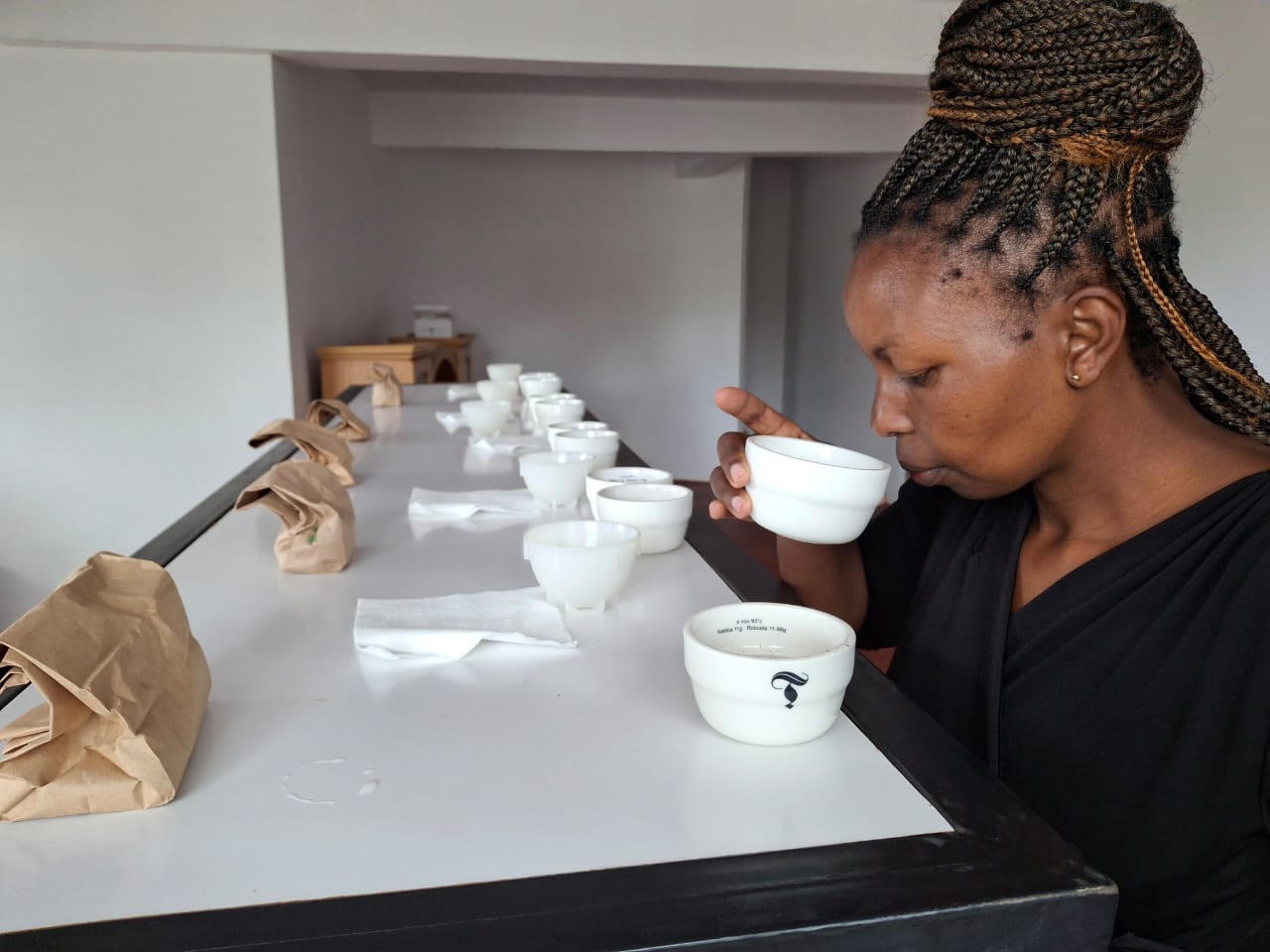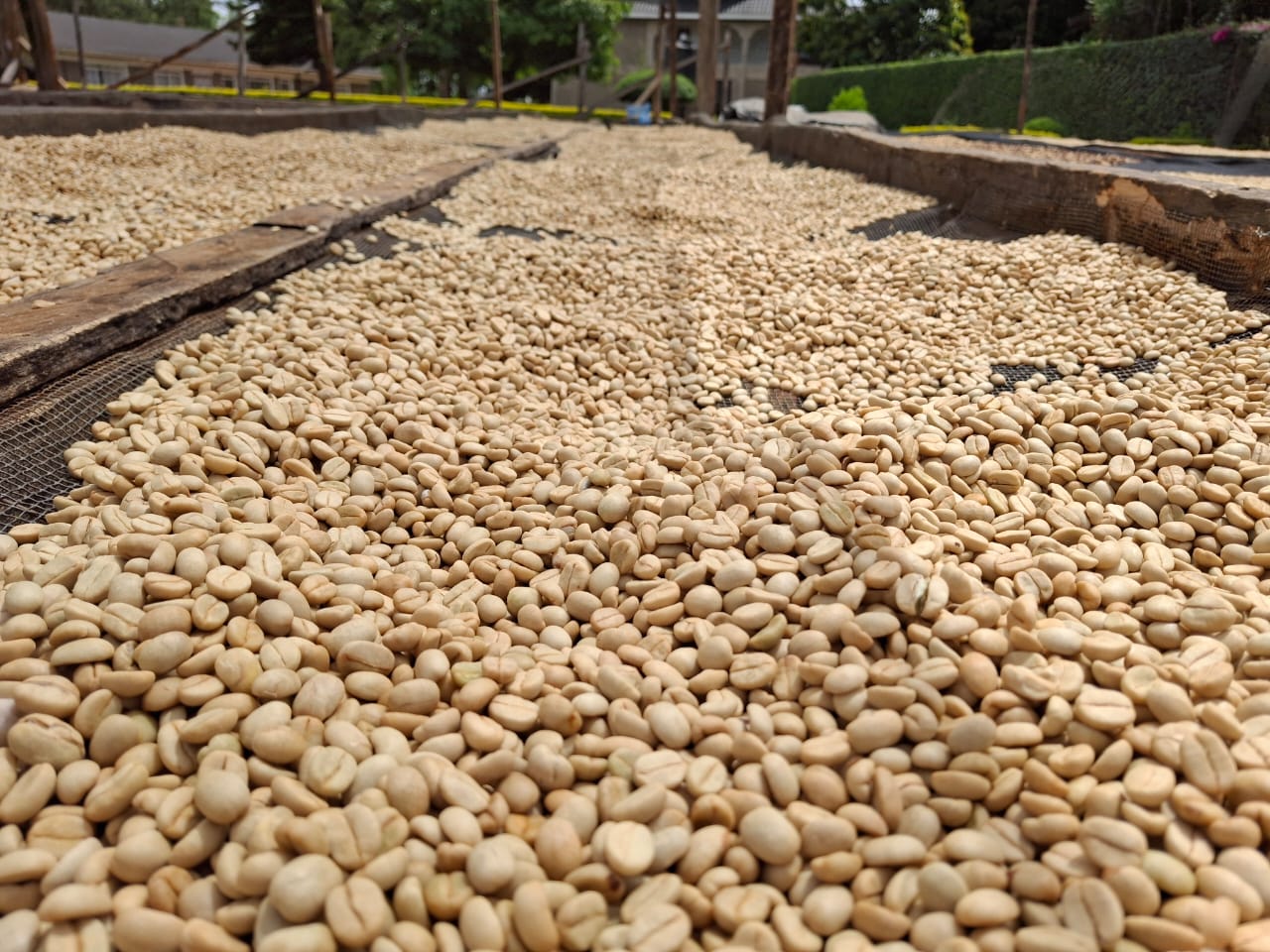Major
Accomplishments
To date, the best selling Kenyan coffees are farms/ cooperatives we have worked with at some point, or still working with. The higest price at the Nairobi Coffee Exchange for 2023/24 season was paid to a lot by Gichathaini, a factory we are working with.
Our work in the specialty coffee industry has received been able to come up with ways of processing coffee, that is specific to variety, farm and ensures the cup score above 87 points.
We did facilitate a coffee training focusing on value addition and market access in Meru, Embu, Kirinyaga, Nyeri and machakos reaching over 200 young farmers in the regions. The training was sponsored by Solidaridad as part of their project dubbed PRACTICE FOR CHANGE, which was geared towards improving coffee production in East Africa. recognition on the global platform with our story being featured in the 25th Issue of the Specialty Coffee Magazine, a publication distributed globally translated in all major languages.
The Director of Kamavindi coffee Lab, Peter Mbature was on the Sprudge 20 list for the year 2022. The sprudge 20 is an annual initiative by Pacific Barista series that recognizes extra ordinary individuals in the global specialty coffee community. He also received the Re;Co Fellowship award in 2019 due to his contribution to the Specialty Coffee Industry. The director has been featured in the Specialty Coffee Magazine Issue No. 18, once again recognizing his contribution to the industry.
Through years of experiments we have


